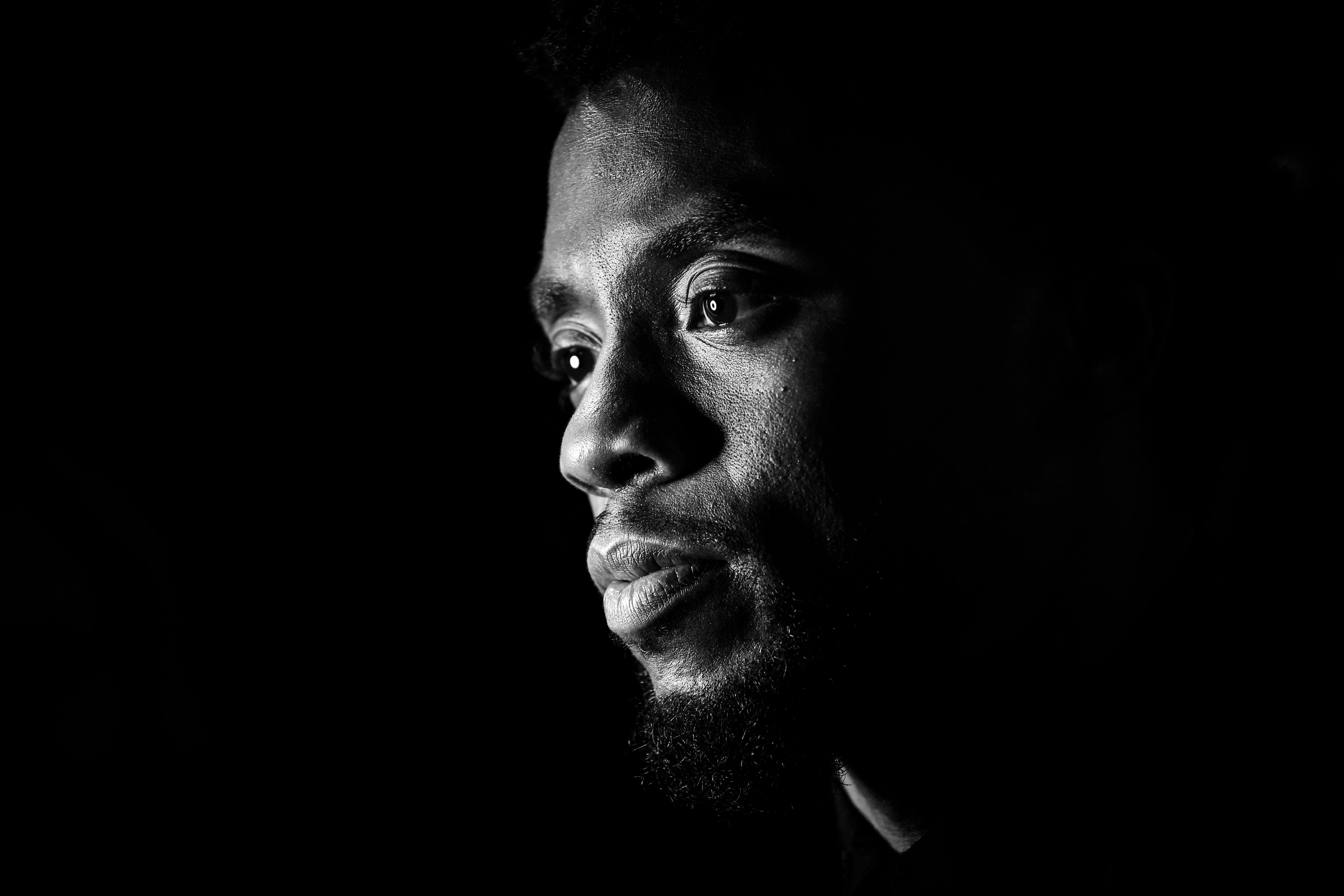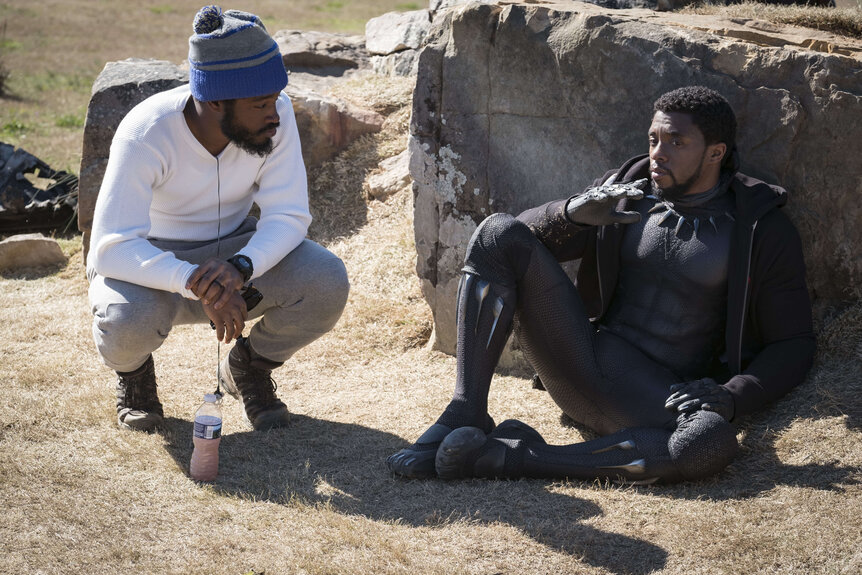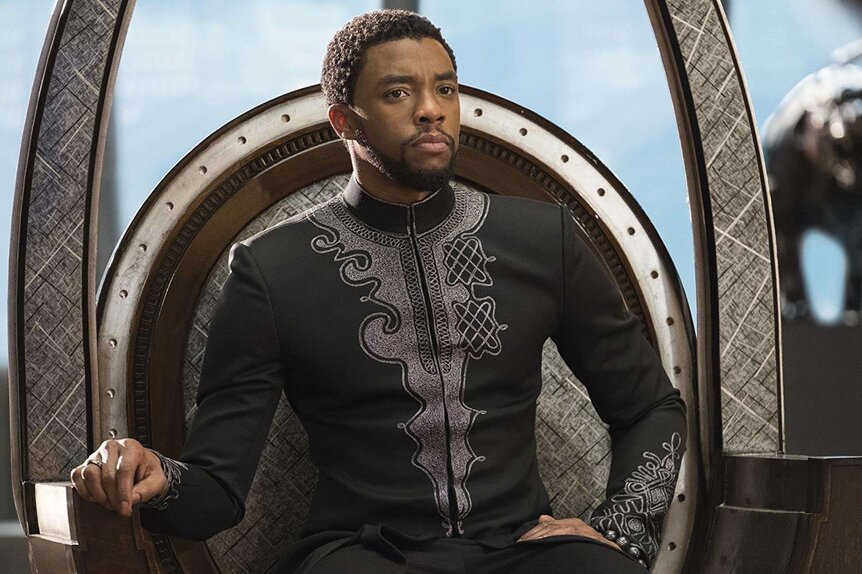Create a free profile to get unlimited access to exclusive videos, sweepstakes, and more!
Wakanda Forever: With Black Panther, Chadwick Boseman showed us Blackness is synonymous with excellence

Chadwick Boseman’s death came as a shock to me and the entirety of the Black community when the news broke that he passed away on the evening of Aug. 28 after a long battle with colon cancer. The majority of the public had no idea of the secret war Boseman was fighting whilst delivering the performances of many lifetimes, including Marvel’s Black Panther (2018). Being a fellow Howard University Bison who had seen him in person during my freshman year of college and a fan of Boseman’s work, I could not even begin to wrap my head around this new and profoundly grim reality. However, the daunting question proposed by his Black Panther co-star Danai Gurira in her Instagram tribute to Boseman — “How do you honor a king?” — gives me a place to start.
To honor a literal hero both on and off the screen, we must celebrate and remember his life and his contributions to our communities. While he contributed many things, it is imperative that his work be revered as one of the pivotal turning points for contemporary Black representation in TV and film, particularly with the Black Panther film.
Chadwick Boseman was responsible for bringing many of history’s biggest African American influencers to the big screen, including that of his breakout role playing Jackie Robinson in 42 (2013), James Brown in Get On Up (2014), Thurgood Marshall in Marshall (2017), and even in his final project, 2020's upcoming Ma Rainey’s Black Bottom. It is more than clear that Boseman was dedicated to telling stories that centered the Black experience. However, his casting as T’Challa in the Marvel Cinematic Universe changed the game for the representation of Blackness in mainstream media. In an interview with HipHollywood and throughout the promotional tour for Black Panther, Boseman spoke to how special and impactful this movie was due to the differing perspectives it brought to conversations about Black identity.
In the same vein, while speaking with the Breakfast Club, Boseman talked about the viral reception of the film from Black viewers and the cultural relevance therein. He reveled at the level of support the film received as people showed up in droves to theaters. Black Panther’s release triggered a viral, international phenomenon; Black people from all walks of life showed cultural pride and solidarity by dressing up in traditional African garbs and dashikis, wearing facial markings to emulate those of African cultures, and even buying out theaters for Black kids in urban communities to watch the movie. Boseman noted that the film was “history being created,” as opposed to his past projects, which were about "remembering the past" and "looking back at history." He made it clear that Black Panther encapsulated “a very present moment that takes us into what could be a different future."
In his detailed and heartfelt response to Boseman’s passing, Ryan Coogler, the director of Black Panther, discusses the level of dedication and detail Boseman brought to the role even before Coogler decided to spearhead the standalone film. He reflected on his decision to make Black Panther coming from watching unedited scenes of Boseman and John Kani speaking Xhosa in Captain America: Civil War (2016). He was in awe at Boseman and Kani’s decision to declare Xhosa as Wakanda’s official language. He was even more impressed at Boseman’s ability to learn the language on set that day to carry out those scenes, which speaks to the level of commitment to giving audiences a Wakanda that could be set in the real world. This level of detail paid to the language choice of the fictional country combined with what is already known about the region in the real world provided a level of authenticity to the character that audiences could not help but connect with. And they did just that.
Boseman’s portrayal of the young prince-now-crowned-king gave Black children and the Black community at large a new view of what it meant to be Black and proud. This predominantly Black cast and crew were not only dedicated to bringing an authentic and fully realized vision of African cultures as they currently are, but also in manifesting the idea of Africa and the Black diaspora in what it could be. The film opened new doors to conversations in TV and film surrounding the Pan-Africanist ideals and values of unity, resource sharing, and community building while also challenging the stereotypical imagery of African nation-states as being underdeveloped and poor regions.
In the aforementioned HipHollywood interview, Boseman hinted at the Pan-Africanist themes present in the film, stating that while there is a conflict between the "African and African American," they are “two sides of the same coin." He also went a bit further into that conversation by exploring the different political paradigms that are often present in the Black community, which is represented through T’Challa and Killmonger. While one is concerned with protecting the resources and integrity of his people, the other wants to leverage those resources to radically liberate Black people around the world. Ultimately, Black Panther presents the ever-haunting dilemma in discussions of Black liberation, where we are tasked with the impossible choices of liberating everyone or tending to our own.
This came at a time when Black representation in movies and TV felt like it began to take a turn. That turn can be analyzed as following the series of police-involved killings of unarmed Black men and boys from 2013 to 2015, which resulted in ongoing sociopolitical conversations on racial equity, Black hypermasculinity, and the bestialization of Black people. Surrounding the release of Marvel’s Luke Cage starring Mike Colter and 2016’s Moonlight starring Mahershala Ali, Naomie Harris, Janelle Monáe, Ashton Sanders, and directed by Barry Jenkins, we began to see Black people in more diverse roles in TV, film, and even photography and modeling. This spurred a sort of new-age Black art renaissance. We began to see more art, performances, and images of Blackness being humanized in a manner that realistically grounded them in our everyday realities.
Black Panther took that conversation a step further by imagining what representation could look like for Black people in a way that is rooted in Afrofuturism, a term first coined by Mark Dery that finds its groundings in elements of science fiction, feminism, and Afrocentrism. With HipHollywood, Boseman remarked on the different perspectives of the movie that directly align with Afrofuturism by noting its futuristic and feminist themes. He went on to acknowledge the legwork done in Wonder Woman (2017), but states that Black Panther takes that imagery and discussion a step further by addressing the non-conformity of Black women's appearances and behaviors. Having these sorts of themes and dialogue be present, both directly and indirectly, in the film spawned more conversations of what Black liberation looks like and opened up the imagery of possibilities for Black people to achieve.
Black Panther went on to earn $1.3 billion in the worldwide box office and is the 12th highest-grossing film of all time. It is also the first live-action film in the Marvel franchise to earn Academy Awards, making Ruth E. Carter the first Black person to win in Costume Design and Hannah Beacher the first Black person to win in Production Design. Beyond helping to disprove the myth that Black stories are not profitable or wanted, Black Panther showed us that Blackness is synonymous with excellence. While the portrayal of the character itself was a proverbial breaking of the glass ceiling, the success, visibility, and messaging of the film pushed us to envision the skies beyond that ceiling.
The Black Panther has always been a symbol of Black power, unity, regality, and pride, but it was Chadwick Boseman who immortalized the Black Panther for all of us to remember. He created a space for Black people to see ourselves as something bigger than the barriers imposed upon us. His career and his life was the sole embodiment of how boundless the possibilities of Black excellence truly is and can be. His gift to the world was to show us that we are all Black Panthers, from the youngest to the eldest of us. He taught us that Wakanda, its ideas, and its values live within us. Because of this, because of him and his dedication to giving us dreams beyond our wildest imagination, Wakanda is forever.




























